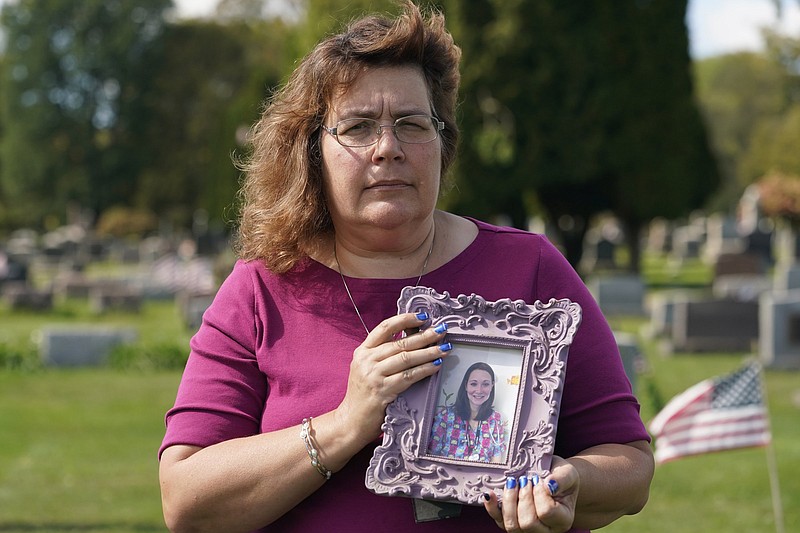CLEVELAND -- In a bellwether federal trial starting today in Cleveland, Lake and Trumbull counties will try to convince a jury that the retail pharmacy companies played an outsized role in creating a public nuisance in the way they dispensed pain medication into their communities.
This will be the first time pharmacy companies, in this case, CVS, Walgreens, Giant Eagle and Walmart, have gone to trial to defend themselves in the nation's ongoing legal reckoning over the opioid crisis.
The trial will center on the harm to the counties and the response by the pharmacy chains, which have argued in court filings that their pharmacists were merely filling prescriptions written by physicians for legitimate medical needs. It also has a human dimension, watched closely by those whose family members are part of the roughly 500,000 Americans whose deaths are attributed to opioid abuse over the past 20 years.
So many prescription painkillers were dispensed in Lake County, Ohio, between 2012 and 2016 that the amount equaled 265 pills for every resident. Just to the south, the flood of prescription opioids during the same period equated to 400 pills for every resident of Trumbull County.
Attorneys say efforts to address the ensuing overdose epidemic has cost each of the financially struggling counties at least $1 billion. Now those counties want major national pharmacy chains that were involved in much of that distribution to pay.
"People need to realize that drug addiction is a family disease, and everyone in the family is affected by it," said Sharon Grover, whose daughter died after becoming addicted to prescription pain pills and then heroin. "I'm never going to be the same."
When pain pills became scarce, her daughter Rachael Realini turned to heroin to feed her habit, said Grover, who lives in a small Trumbull County community.
Attempts at rehabilitation failed and Realini was found dead at her home in April 2017 from a fentanyl overdose, an autopsy showed. No other drugs were found in her system.
An attorney for the counties, Frank Gallucci, said that is similar to the pattern seen throughout their communities: Heroin and synthetic fentanyl have largely replaced prescription painkillers, which have been harder to obtain as the industry has been forced to dial back on dispensing.
Rite-Aid settled with Lake and Trumbull counties. The Trumbull settlement was $1.5 million; the Lake County amount has not been disclosed.
The trial starting today before U.S. District Judge Dan Polster is part of a broader constellation of federal opioid lawsuits -- about 3,000 in all -- that have been consolidated under the judge's supervision.
Jim Misocky, an attorney and special projects coordinator in Trumbull County, along with Lake County Administrator Jason Boyd, said the ongoing opioid crisis has been a burden financially.
The financial burden is especially acute in Trumbull County, where there have been thousands of job losses in recent years in steelmaking, auto manufacturing and automotive supply companies.
Trumbull County has had to hire a part-time pathologist in the county coroner's office, Misocky said. When the county morgue fills up, bodies are sent to Cleveland or Lake County for autopsies.
Lake County's Boyd said addiction treatment facilities there are "well beyond capacity."
In trial briefs, the pharmacy companies argue that they followed guidelines established by the U.S. Drug Enforcement Administration and the state of Ohio in how their stores dispensed painkillers.
Attorneys for CVS, based in Rhode Island, said the allegations against the company "are completely unfounded."
Attorneys for Illinois-based Walgreens said the two counties were using "confused and contradictory legal theories against other defendants before they landed on the idea to sue retail pharmacy chains."
Grover believes the pharmacy giants bear a large responsibility for her daughter's addiction and is glad they're on trial.
"The pharmacy companies are the biggest drug dealers there are," Grover said. "They're white collar drug dealers, and they need to be held accountable."
Information for this article was contributed by Geoff Mulvihill of The Associated Press.
